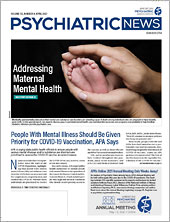Having saved all my vacation weeks in medical school for the very end, I was able to travel to Tibet and Nepal. I set out to climb Kala Patthar, an 18,514-foot pile of limestone and shale, from the top of which one has a clear view of Mt. Everest. Because our Sherpas threatened to mutiny so they could attend the Mani Rimdu festival scheduled for the same day as our summit, we shaved two acclimatization days off our ascent. Coming from sea level, I felt drained of energy and struggled for oxygen. I gave myself permission not to reach the summit but talked myself into taking “just one more step.” Because shale is unstable, a step forward sometimes resulted in a slide back. Recently, I have been recalling that long-ago climb, applying its lessons to this point in the pandemic. We are at a precarious place on the pandemic’s path. We have one foot on solid limestone, our hope bolstered by effective vaccines that many health care professionals and seniors have already received. Our other foot is slipping on the shale of a mutating virus whose new variants are more contagious and more virulent, provoking fear of another surge before we have completely emerged from the last one. As we struggle to navigate this terrain, some of us are better equipped than others by virtue of our health status, our ethnicity, our wealth, and/or our privilege. Just as a well-equipped and experienced mountaineer would stop to assist one who may be struggling, it is incumbent upon us to help our more vulnerable neighbors, and especially our most at-risk patients.
At the time of this writing, 19% of the U.S. population had received at least one dose of the COVID-19 vaccine. By the time you read this, it will be much higher. One glaring problem is that these vaccines are disproportionately in the arms of well-off, White people. The rates of vaccination among Black and Hispanic people are far below their proportions in the population of states for whom these data exist. In part, the lower vaccination rates may be due to vaccine hesitancy, with one research report finding that only 42% of Blacks express willingness to receive the vaccine, compared with 61% and 63% for Latinx and Whites, respectively. It is our duty to find ways to overcome this vaccine avoidance by Blacks, not by bullying but by building trust and engagement. It is also our responsibility to understand and remedy the low vaccination rates in Latinx communities.
The current web-based systems for obtaining vaccination appointments are part of the problem. The elderly and underprivileged may lack the web-connected devices and internet skills with which to make appointments online. To mitigate this problem and ensure justice in the vaccination effort, mass vaccination programs are necessary at predominantly Black churches and barbershops; American Indian and Hispanic/Latinx health and cultural centers; and other trusted sites in Black, Indigenous, and People of Color (BIPOC) communities. Otherwise, we will continue to see reports that those who live in wealthy, White neighborhoods are receiving the vaccine ahead of others.
As psychiatrists, we may be best situated to bring the vaccine to another population that experiences health disparities and reduced access to medical services: those with serious mental illness (SMI). Individuals with schizophrenia spectrum disorders appear to have more than twice the risk of dying from illnesses related to COVID-19 than those without schizophrenia (
Psychiatric News). A study posted March 13, 2019, in the
Journal of the American Psychiatric Nurses Association found that creating a vaccination clinic in a community mental health center (CMHC) increased the vaccination rate from 18.75% to 83%. This remarkable success rate points to the potential for creating pop-up vaccination clinics at CMHCs to reach our most vulnerable patients, especially our SMI patients who are from BIPOC communities.
In addition to advocating for and organizing vaccination events that are more geographically and culturally accessible to the full spectrum of humanity, psychiatrists may want to examine the ways in which we unwittingly continue to exercise our privilege at others’ expense. I admit to having reached out to a medical school classmate for help finding a vaccine for my 85-year-old mother, who had been trying three times a day for weeks to get a vaccine appointment in her state. I had qualms about this; my mother has internet access on her cellphone. If I exercise my connections to help her, shouldn’t I offer similar advocacy services for seniors with fewer resources? Fortunately, she was able to get on a vaccine waitlist the very next day, and I withdrew my request for a favor from my classmate.
Another important element of our response to the exercise of privilege in jumping the vaccination line is to educate the public and our patients about the ethics of vaccine distribution. The key principle is justice in health care: Resources should be allocated with systematic fairness. Politicians and “vaccine tourists” getting their vaccinations in advance of the elderly and those on the front line is an injustice.
We have been on this very steep trail for almost a year. We are exhausted. It looks like the trail may be leveling out up ahead. This may be a false summit, and we may have miles and months ahead of us. I did make it to the top of Kala Patthar, but it wasn’t easy. I took “just one more step,” one step at a time, all the way up that heap of rocks. The view was spectacular. ■
“Adult Vaccination Rates in the Mentally Ill Population: An Outpatient Improvement Project” is posted
here.

